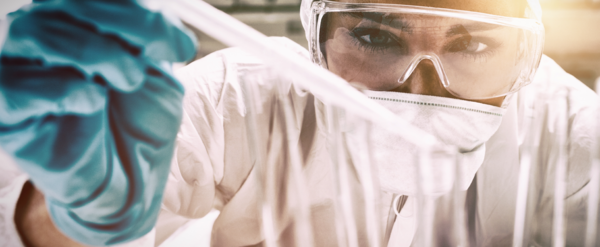Moderna Australia has announced CSIRO researcher Dr Anne Klein as its 2025 Moderna Australia Fellow, recognising her pioneering work at the intersection of artificial intelligence, computational modelling and next-generation mRNA medicines.
The annual Fellowship, awarded to one emerging Australian scientist annually, supports innovators working to advance the science, design and development of mRNA technologies.
Dr Klein, a Research Scientist at CSIRO’s Australian e-Health Research Centre, is developing sophisticated AI-driven tools to predict how mRNA molecules fold, behave and fit inside nanoscale delivery systems. Her project focuses on one of the most complex challenges in mRNA medicine: ensuring the genetic material is efficiently encapsulated within carrier particles so it can be delivered safely and effectively into cells.
By using machine learning to design better-performing mRNA sequences and improve packaging efficiency, her research aims to reduce formulation cycles and accelerate the journey from molecular concept to clinical application.
“This project builds on Dr Klein’s bespoke AI platform and has the potential to streamline the design and production of mRNA medicines,” Moderna said, noting that her work could help resolve structural and formulation barriers early in the development pipeline.
The Fellowship will also support collaborations across the national research ecosystem, including partnerships with the Children’s Medical Research Institute and the Australian National University. These cross-institutional links will bring together expertise in structural biology, molecular modelling and delivery system engineering.
Dr Felicia Pradera, Director of Moderna’s Regional Research Centre for Respiratory Medicines and Tropical Diseases, said the Fellowship exemplifies Australia’s role in global scientific innovation.
“The dynamic research ecosystem in Australia is pivotal in propelling innovative science forward globally. Anne’s project appealed to us as a creative use of AI to advance mRNA technology,” she said, highlighting Moderna’s commitment to embedding AI across its research and development programs.
Dr Klein said she was honoured to receive the award.
“My goal is to use artificial intelligence and structural modelling to make mRNA medicines more predictable, manufacturable, and accessible, helping accelerate the journey from molecular design to patient benefit,” she said.
The Moderna Australia Fellowship provides two years of funding, expert mentorship, hands-on industry learning and direct engagement with Moderna’s global R&D teams. Fellows gain experience translating laboratory discoveries into real-world therapeutic innovation.
Dr Klein’s work builds on her extensive background in bioinformatics and molecular modelling. She holds a PhD in Bioinformatics and dual master’s degrees in Immunology and Bioinformatics, and is the developer of CapBuild, a cloud platform for AAV capsid engineering. Her research has led to new approaches for optimising viral vector design and improving packaging efficiency, now being adapted to support the next wave of mRNA technologies.
